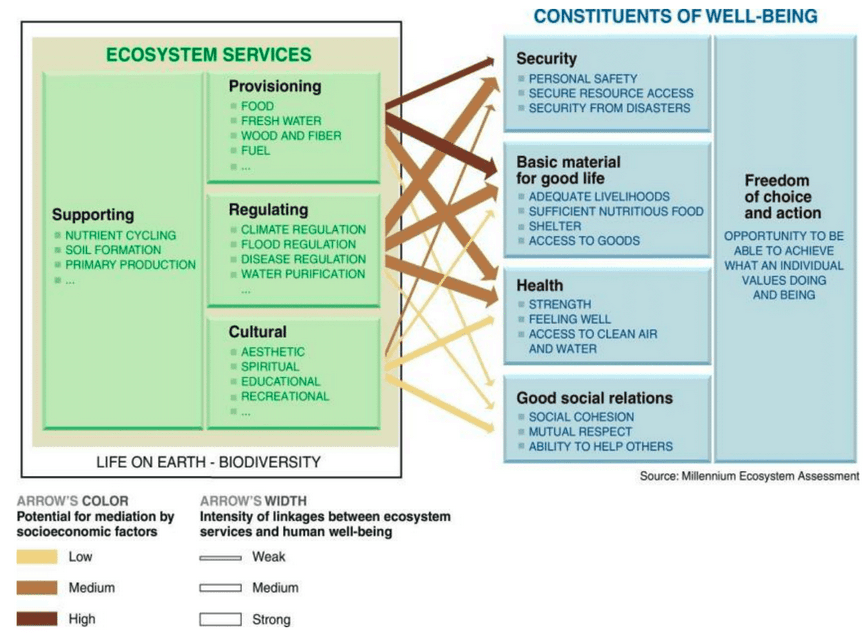
Valuation and mapping of ecosystem services forhuman wellbeing
The valuation and mapping of ecosystem services (ES) and their linkages to human well-being represent a critical research frontier aimed at understanding, quantifying, and communicating the diverse benefits that nature provides to people—including provisioning (e.g., food and water), regulating (e.g., climate control, pollination), cultural (e.g., spiritual, recreational), and supporting services (e.g., soil formation). Ecosystem services serve as a powerful bridging concept between ecological processes and human well-being, emphasizing the deep interdependence between societies and the natural systems they inhabit. This research embraces a plural and multi-dimensional approach to valuation, recognizing that nature holds diverse meanings and values—monetary, social, cultural, psychological, and intrinsic—that vary across worldviews, knowledge systems, and stakeholder groups. Central to this work is the use of spatially explicit tools such as remote sensing, GIS, and participatory mapping to visualize where services are generated, how they flow across landscapes, and who benefits or is left behind. These spatial insights are essential for identifying trade-offs, synergies, and potential conflicts, and for informing policies that balance ecological integrity with social equity. Human well-being is viewed holistically—encompassing material needs, health, security, agency, and identity—underscoring how access to and distribution of ecosystem servicesshape livelihoods and resilience, particularly in vulnerable or resource-dependent communities. By highlighting these complex linkages and integrating them into governance processes through inclusive, participatory, and transdisciplinary approaches, this research aims to support more equitable, informed, and sustainable management of socio-ecological systems.
Keywords
No keywords available